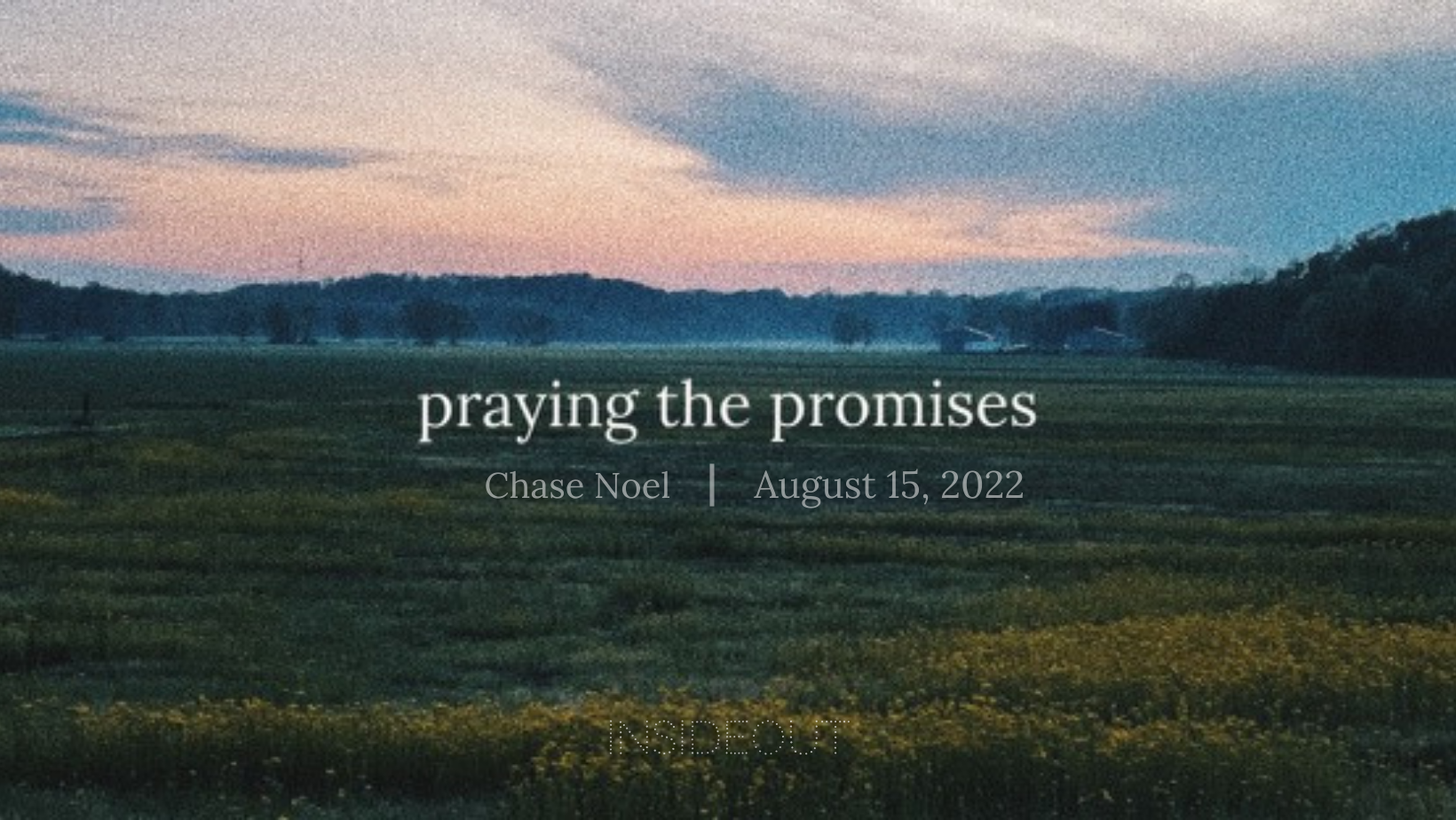Praying the Promises

Numbers 12:3 reads: “Now the man Moses was very meek, above all the men which were upon the face of the earth.”
Moses was a man not characterized by his gifts and charisma, nor his looks and stature… as some Old Testament characters were. No, quite the opposite actually, as Moses is known for being meek.
Our culture’s impression of meekness might associate the term with weakness or passivity, but this is not how the Bible esteems it. The word meek in this verse comes from the Hebrew word ‘anah’ (aw-naw) and it means “to be bowed down”.
Meekness, then, has less to do with one’s personality type and more to do with the posture we take in our relationship with God and others.
Moses lived his life as one bowed down, and submitted to the Word of the Lord.
In surveying his leadership, I can see only one instance wherein Moses responds emotionally to a commandment given by the Lord. Otherwise, he is a man known for his complete submission to God’s leading, and by his care for God’s people. To be sure, this is what made him meek.
What initially drew me to thinking about Moses and meekness was his intercessory prayer for Israel in Exodus 32.
It reveals to us Moses’ heart in that he doesn’t imply himself, pleading his own case in praying for God’s people. Instead, he appeals solely to Who God is.
Before we read his prayer, though, let’s briefly establish its context.
Israel had become impatient in waiting for Moses to return from the top of Mt. Sinai, where he spent 40 days receiving instruction from the Lord. In their impatience, the Israelites pressured Aaron (next in command) to fashion for them a golden calf to which they could direct their worship. Aaron obliged and God became angry.
At the sight of their sin, the Lord says to Moses:
“Go, get thee down, for thy people, which thou broughtest out of the land of Egypt, have corrupted themselves… let me alone, that my wrath may wax hot against them, and that I may consume them: and I will make of thee a great nation.” (Ex. 32:7, 10)
Moses then steps in the gap between the people’s sinfulness and God’s judgment. Reminding the Lord of three things I think we can not only learn from but apply in our own prayer life.
- Moses prayed according to the Lord’s power.
Exodus 32:11 says: “And Moses besought the LORD his God, and said, ‘LORD, why doth thy wrath wax hot against thy people, which thou hast brought forth out of the land of Egypt with great power, and with a mighty hand.”
Here’s my simple paraphrase for this verse.
Look at what You have done in getting us here, Lord. Let not the sin of Your people nullify the great things You have done in the earth, and for Your fame.
It is good to remind God of the great things He has done for us not because He has forgotten, but so that He would know that we have not forgotten.
– He appealed to the power of God.
- Moses prayed according to the Lord’s personality (or character).
He says: “Wherefore should the Egyptians speak, and say, ‘For mischief (with evil intent) did he bring them out, to slay them in the mountains, and to consume them from the face of the earth?’” (Ex. 32:12)
In other words…
Your enemies will say that You are a cruel, violent god who is intolerable towards his people… that You are temperamental and unpredictable; inclined to destruction and without mercy.
Where the Lord’s power was made obvious to everyone through the plagues, His character only Moses could have come to know through the time alone that he had spent in God’s presence.
Psalm 103:7 makes this distinction clear for us. It says, “He (Jehovah) revealed his character to Moses and his deeds to the people of Israel.”
Despite the Lord’s anger and impending judgment toward Israel, Moses knew God’s heart. That He is kind and His reputation is love. Thus Moses asks Him to remember this kindness so that the Egyptians would have nothing with which they could accuse His character, defaming His name.
– He appealed to the character of God.
- Moses prayed according to the Lord’s promises.
He concludes the prayer by saying: “Remember Abraham, Isaac, and Israel, thy servants, to whom thou swarest by thine own self and said unto them, ‘I will multiply your seed as the stars of heaven, and all this land that I have spoken of will I give unto your seed, and they shall inherit it forever.’” (Ex. 32:13)
Remember Your Word, Lord. Remember how You bound Yourself to it… And Your servants, who were faithful to You — remember them also.
This final part of Moses’ prayer teaches us to pray His promises and to pray the past.
If I could word it in this way: humbly hold God accountable for what He said He would do. Because “God is not a man that He should lie…” (Num. 23:19)
When the promise was given to you, He knew that this moment would come (whatever this moment represents). This begs us to ask…
If this moment didn’t stop Him from making the promise in the first place, why would it prevent Him from fulfilling it now or in the future?
– He appealed to the promises of God.
Before Moses could utter an “amen”, Scripture says: “And the Lord repented of the evil which he thought to do unto his people.” (Ex. 32:14)
An entire nation was spared and eventually established because a man with a meek heart prayed according to God and not himself.
Pray His power – Pray His personality – Pray His promises

Chase hails from the Hoosier state, where he earned his B.A. in Biblical Studies from Indiana Bible College. Currently, he serves in an assisting role at Family Life Church located in Bloomington, IN. Among his favorite hobbies are books and basketball. As much as he loves chicken shawarma, he loves Jesus more.






